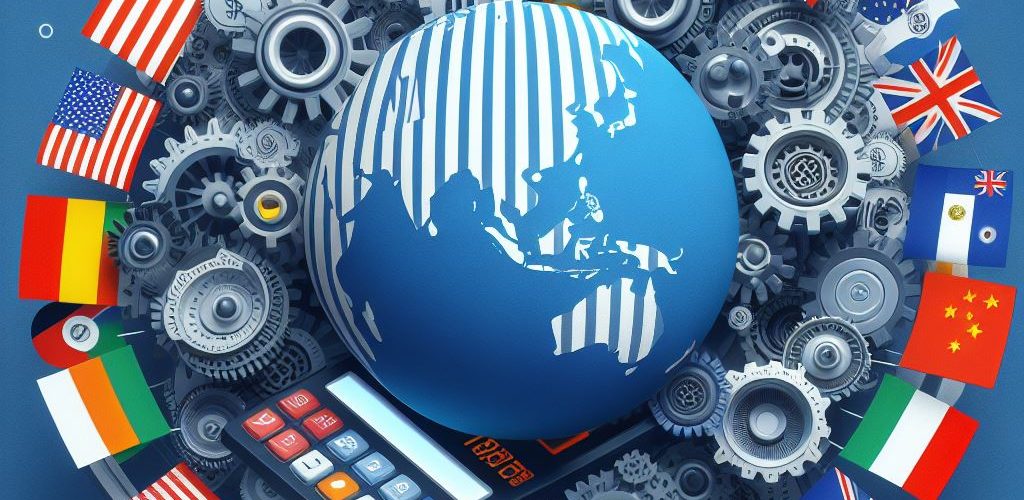Last update: April 15, 2024
Implemented
- Indonesia – As of July 2015
- Indonesia uses an electronic invoicing system called e-Faktur Pajak, which became mandatory in stages starting in July 2015.
- Mandatory: Since July 2016 for all VAT-registered companies
- Process: Companies create e-invoices and send them to the tax authorities for validation and approval
- India – As of October 2020
- E-invoicing, or electronic invoicing, is mandatory for businesses registered under the Goods and Services Tax (GST) in India
- The system launched in October 2020
- Here’s how it works:
- Businesses upload their B2B invoices to the Invoice Registration Portal (IRP)
- The IRP verifies the invoice data and assigns a unique Identification Registration Number (IRN)
- The IRN is then returned to the business, who can share the invoice with the customer
- This system aims to improve tax compliance and reduce fraud
- Recent development: GSTN mandates e-Invoicing for businesses with over INR 5 crores turnover from April 1, 2024
- Philippines – As of July 1, 2022 – Still in progress
- The Philippines has a mandatory e-invoicing system in place since July 1, 2022 (mandatory for largest 100 taxpayers)
- During 2024: All taxpayers must issue electronic invoices and report them to the Bureau of Internal Revenue (BIR)
- Implementation stages: The system was rolled out gradually
- Technical requirements:
- Invoices issued electronically in JSON format with a digital signature
- Taxpayers are required to issue receipts and invoices electronically and transmit the data to the EIS in JSON format within three calendar days from the date of the transaction
- Issuance and transmission can be done via the EIS portal or API connection. Note that only authorized taxpayers are allowed to access the EIS, therefore they shall apply for the Permit to Transmit (PTT) to transmit the sales data to the EIS.
- Storage requirements: E-invoices must be stored electronically for 10 years
- Vietnam – As of July 1, 2022
- Vietnam implemented mandatory electronic invoicing (e-invoicing) on July 1, 2022, for all businesses
- This means all taxpayers that previously issued paper invoices must now use e-invoices
- Submission: Businesses can submit e-invoicing data directly or through authorized service providers
- Pakistan – February 1, 2024
- E-invoicing, also known as electronic invoicing, is mandatory for certain businesses in Pakistan as of February 1, 2024
- The Federal Board of Revenue (FBR) is implementing the system in stages, with the first phase targeting manufacturers, importers, wholesalers, dealers, and distributors of fast-moving consumer goods (FMCGs)
- These businesses must generate electronic sales tax invoices using an FBR-approved system
- The FBR is expected to introduce an electronic invoice validation system in the future, requiring all invoicing to be processed electronically
Planned
- Malaysia – As of August 1, 2024
- Malaysia is implementing e-invoicing in stages
- Mandatory for some in August 2024: Starting from August 2024, e-invoicing will be mandatory for businesses with an annual turnover exceeding MYR 100 million, with full mandatory implementation expected by July 2025
- Optional now: Businesses below the threshold can adopt e-invoicing voluntarily
- Timeline
- 1 August 2024 – Taxpayers with an annual turnover or revenue of more than MYR 100 million;
- 1 January 2025 – Taxpayers with an annual turnover or revenue of more than MYR 25 million and up to MYR 100 million; and
- 1 July 2025 – All taxpayers
- Singapore – As of May 1, 2025
- This will be done in phases, starting with voluntary early adoption from May 2025:
- From 1 May 2025, for voluntary early adoption by GST-registered businesses (soft launch)
- From 1 November 2025, for newly incorporated companies that register for GST voluntarily
- From 1 April 2026, for all new voluntary GST-registrants
- This will be done in phases, starting with voluntary early adoption from May 2025:
Other countries
- E-Invoicing/Real Time Reporting – What can you find on VATupdate.com
- See also Worldwide Upcoming E-Invoicing mandates, implementations and changes – Chronological
- Join the Linkedin Group on Global E-Invoicing/E-Reporting/SAF-T Developments, click HERE















